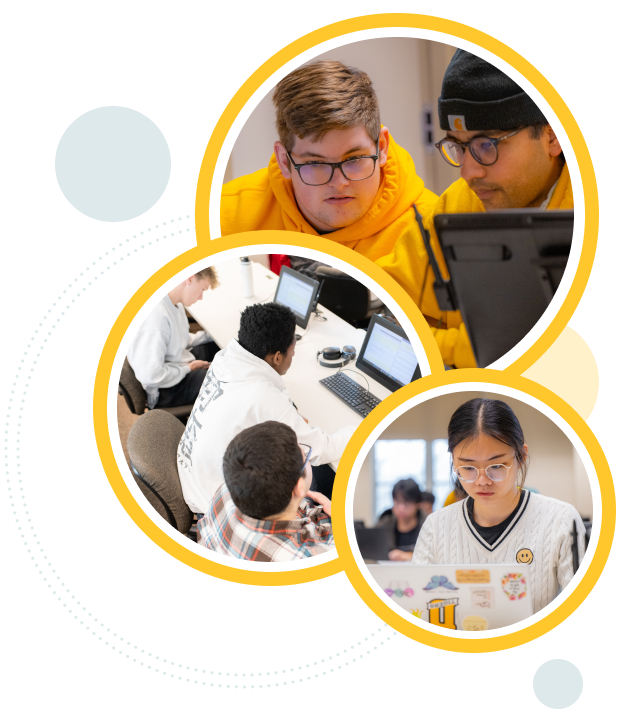At the heart of computer science is the ability to find creative solutions to complex problems. It’s not just about studying the principles of software design or exploring the subtle nuances of machine learning. It’s also about discovering how computers can serve people and help us overcome our most pressing challenges. These problem-solving skills have relevance in diverse business, scientific and social contexts. They also prepare you for a career full of innovation, insight and expertise.
A degree in computer science incorporates both theoretical learning and practical experience. Through a full range of engaging courses, you’ll encounter foundational concepts such as programming, algorithms, cybersecurity, software development and artificial intelligence. You’ll also explore the abundance of ethical considerations that accompany modern computing. From game development and software engineering to data science and IT consulting, you’ll be ready to thrive in any career you choose.
| Major | Degree | School | Format | Course Credits |
|---|---|---|---|---|
| Computer Science | Undergraduate, B.A. | College of Liberal Arts and Sciences | On Campus | 10 Courses |
Computer Science
Undergraduate, B.A.
On Campus
10 Courses
| Minor | School | Format | Course Credits |
|---|---|---|---|
| Computer Science | College of Liberal Arts and Sciences | On Campus | 5 Courses |
Computer Science
On Campus
5 Courses

Leveraging the resources of the College of Liberal Arts and Sciences, the computer science major and minor at DePauw are housed in the Department of Computer Science. This department prepares students to be life-long learners whose skills and knowledge allow them to thrive in a rapidly changing world.
